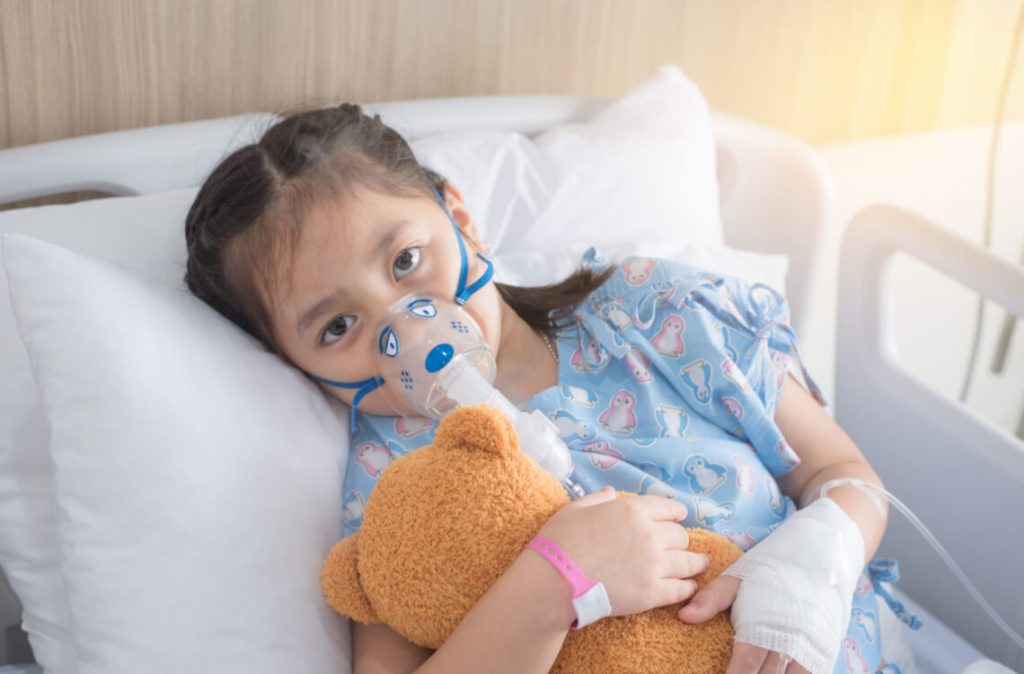Drug allergies are a serious and often overlooked condition in children; it can cause symptoms that are unpleasant, painful and even fatal.
We sat down with Pharmacist Nazatul Amira Hamzah from Primabumi Sdn Bhd to learn more about what parents need to know about drug allergies in children and what they can do.
Nazatul is a qualified pharmacist with 10 years of experience in pharmacy practice involving both hospital and community settings.
She currently holds the position of Pharmacist and Key Account Manager at a renowned pharmaceutical company in Kuala Lumpur.
Here’s her take on childhood drug allergies that parents definitely need to know.
Question 1: What does it mean by ‘drug allergies’?
A drug allergy (also known as drug hypersensitivity) is a type of adverse drug reaction triggered by an overreacting immune response.
Different classes of medicines may cause the same allergic reactions.
Question 2: Are drug allergies dangerous?
Drug allergies can be mild, causing non-fatal symptoms like skin rash and nausea.
However, they can also be life-threatening, often resulting in a condition known as as anaphylaxis.
Anaphylaxis is a medical emergency where a person’s blood pressure drops to a dangerous level and the airways are blocked, preventing you from breathing.
Question 3: What are the possible causes for drug allergies?
There are several risk factors associated with drug allergies or drug hypersensitivities.
Here are the main ones:
- Reactivity: the ability of the drug to produce a complete immune response
- Dose: the frequency of its administration and duration of exposure to the drug
- Route of administration: by mouth, injection, external application, inhalation, etc.
- Exposure: taking the drug in the past and experiencing an adverse effect
- Age and gender: young adult or adult females are more prone to drug allergies
- Genetic factors: if you or your spouse has the drug allergy, chances are your child will too
- Co-existing medical illnesses: various medical conditions are known to react badly to certain drugs
Question 4: How do I spot the signs of a drug allergy?
The following are some common examples of symptoms your child may experience if they have a drug allergy:
- difficulty breathing
- abdominal pain
- diarrhoea
- nausea and/or vomiting
- skin reactions like rash, itching and hives
- swelling of the lips, throat or tongue
Question 5: How long does it usually take for an allergic reaction to appear?
Depending on certain factors, an allergic reaction may be immediate (within minutes or hours) or delayed (within days).
It is strongly advised to monitor your child closely, especially if they are trying a new medication. Particularly during the first 2 hours of them taking it.
Then, continue to check on them periodically during the entire treatment duration.
Question 6: What should I do when my child shows symptoms of drug allergies?
First, stop giving your child the medicine immediately.
If your child is taking more than one medicine at a time and you’re not sure which one of them is the culprit, stop all of them.
Then, seek medical assistance immediately, regardless of whether your child’s symptoms are serious or not.
Your doctor will let you know if the medication can be continued, or if an alternative treatment is required.
Question 7: Can you share some examples of medicines that often cause allergies in children?
Common drugs that cause allergic responses in children include:
- certain antibiotics
- nonsteroidal anti-inflammatory drugs
- aspirin
- chemotherapy drugs
- anti-seizure medicines
However, it’s important to note that any type of medicine can carry the risk of causing a drug allergy.
This is why you should always watch out for drug allergies, especially if your child is taking it a drug for the first time.
Question 8: If my child is allergic to one medicine, is it possible that they have allergies to others?
Yes, if your child is allergic to one drug, they may also be allergic to a different drug with a similar chemical structure.
For instance, if your child is confirmed to have an allergy to penicillin such as amoxycillin and cloxacillin, it is likely that they also have an allergy to cephalosporin antibiotics, including cephalexin and cefuroxime.
This phenomenon is called cross-sensitisation or cross-reactivity.
Question 9: As far as I know, medicines can also cause certain side effects. Are they the same as drug allergies?
A drug allergy is when your body unexpectedly reacts badly to a medication.
A side effect is a known and possible reaction that a medicine can cause, based on the information scientists have found from clinical studies.
It can be tricky to distinguish between the two because drug allergies may produce symptoms similar to side effects.
Question 10: How do I ensure the same drug allergy doesn’t happen to my child again?
These two steps are critical to preventing your child from being exposed to allergy-causing medicine again:
First, remove the medicine from your home so no one can accidentally give it to your child again.
Second, alert your family members, healthcare professionals and school about your child’s drug allergy.
Write down the name of the medicine and your child’s reactions to it. Keep the record properly for future reference.
If possible, ask your healthcare provider to issue an allergy alert card that you can easily show to anyone who may need to know this info quickly.
Source: Nazatul Amira Hamzah, Pharmacist at Primabumi Sdn Bhd
Disclaimer: The information provided in this article is for informational purposes only and should not be considered as medical advice from Motherhood. For any health-related concerns, it is advisable to consult with a qualified healthcare professional or medical practitioner.
For more insightful stories and fun recipes, stay tuned to Motherhood Story!
